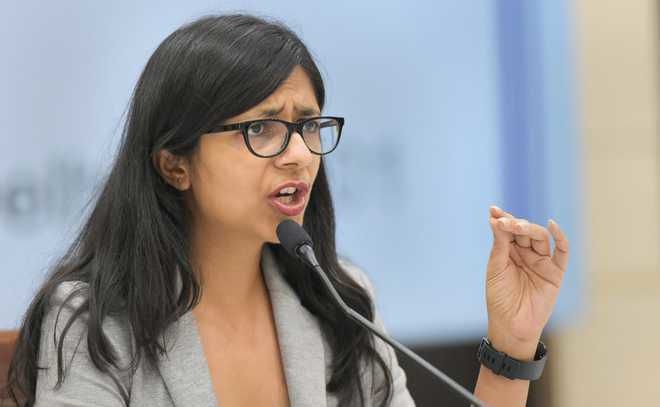
In the bustling heart of India’s capital, New Delhi, recent events have sparked a heated debate and raised eyebrows across the political spectrum. At the center of this controversy is Swati Maliwal, a Member of Parliament representing the Aam Aadmi Party (AAP) in the Rajya Sabha. Maliwal found herself entangled in a perplexing situation, alleging misconduct by a member of Delhi Chief Minister Arvind Kejriwal’s personal staff.
The incident unfolded at the Civil Lines police station, where Swati Maliwal arrived to address an urgent matter. According to her account, the behavior exhibited by the staff member was not just inappropriate but crossed the boundaries of acceptability. Maliwal wasted no time in reporting the incident, aiming to shed light on what she perceived as a grave violation of conduct.
Despite Maliwal’s assertive stance, it is crucial to note that no formal complaint has been lodged as yet. The absence of a documented grievance adds a layer of complexity to the situation, leaving room for speculation and uncertainty.
In response to Maliwal’s distress, the wheels of law enforcement were set in motion. Maliwal promptly reached out to the Police Control Room (PCR), making urgent calls at 10 am. The authorities, cognizant of the seriousness of the matter, promptly dispatched a team from the Civil Lines police station to the chief minister’s residence for further investigation.
As the hours passed, a noticeable silence emanated from both the corridors of power and the AAP headquarters. Despite the gravity of the allegations, there has been no immediate reaction from either the chief minister’s residence or the ruling AAP. This silence only deepens the intrigue surrounding the incident, leaving many wondering about the underlying dynamics at play.
The unfolding saga underscores the pressing need for respectful behavior and proper conduct within public offices. Regardless of one’s position or affiliation, every individual is entitled to dignity and fair treatment. The incident involving Swati Maliwal and the alleged misbehavior by a member of the chief minister’s staff serves as a poignant reminder of this fundamental principle.
In a world where political discourse often descends into chaos and acrimony, this incident stands out as a sobering reflection of the importance of decorum and civility. As the dust settles on this episode, it is incumbent upon all stakeholders to reflect on the values that underpin our democratic institutions and strive for a culture of mutual respect and understanding. Only through such efforts can we hope to navigate the complexities of governance and uphold the principles of justice and fairness that form the bedrock of our society.
